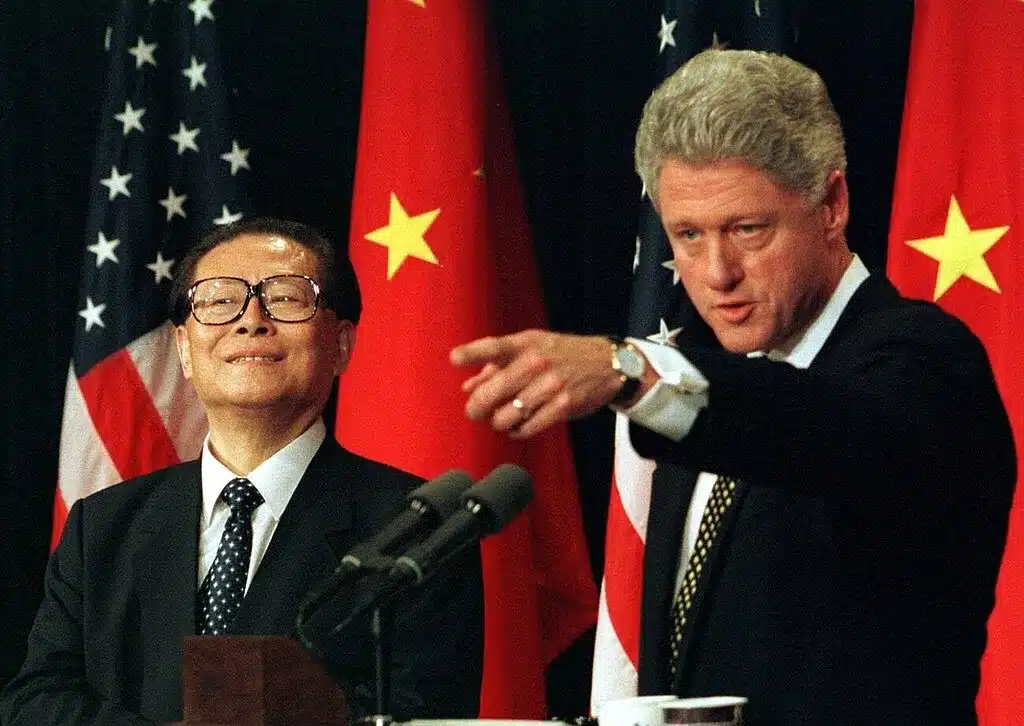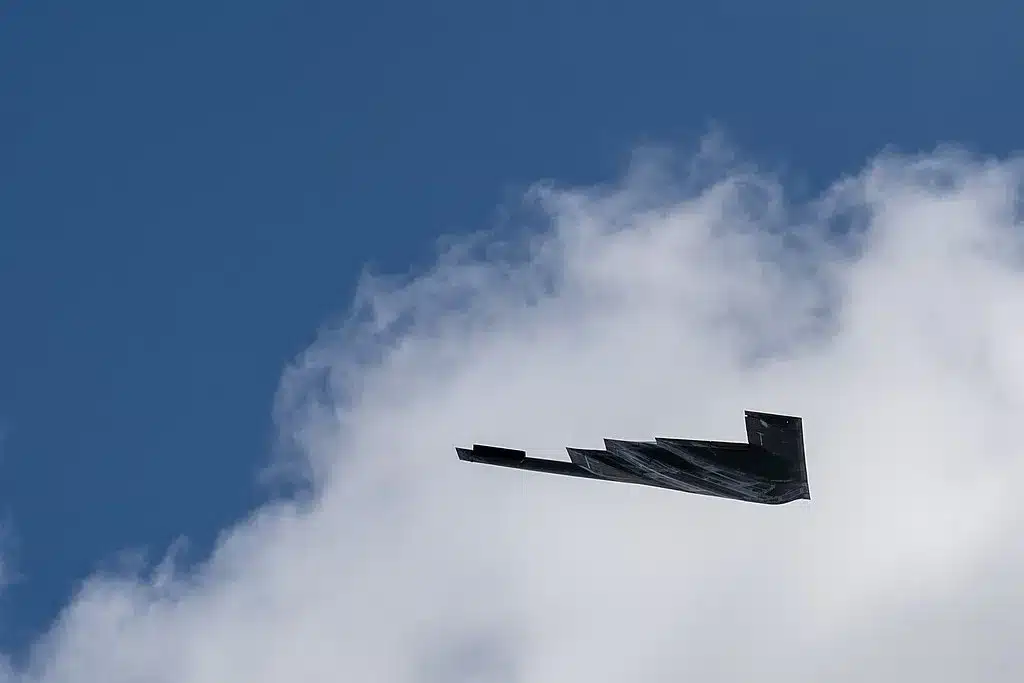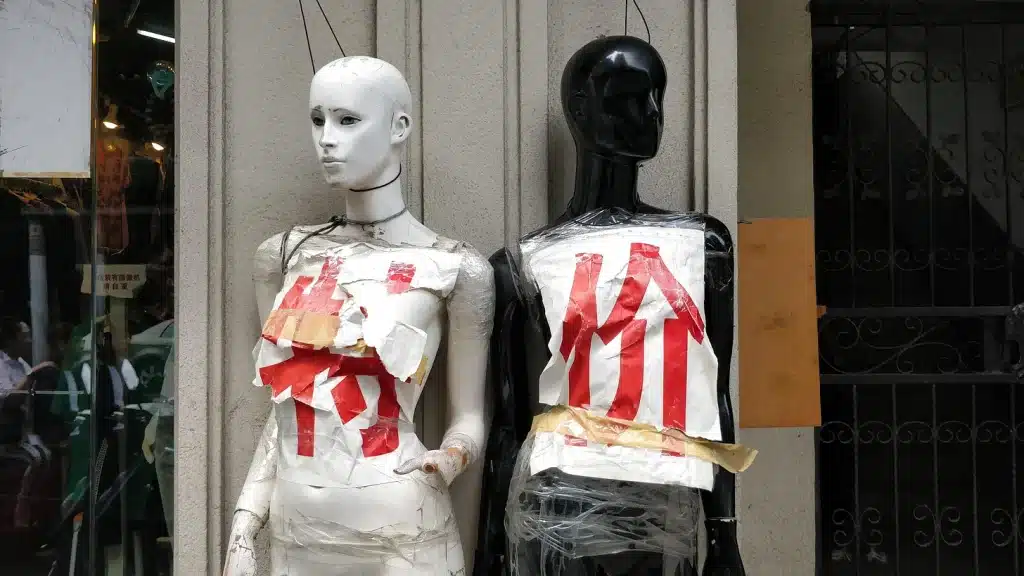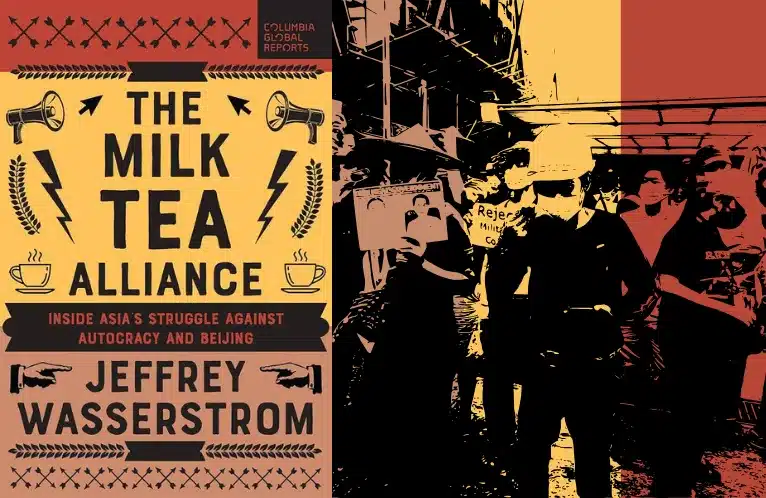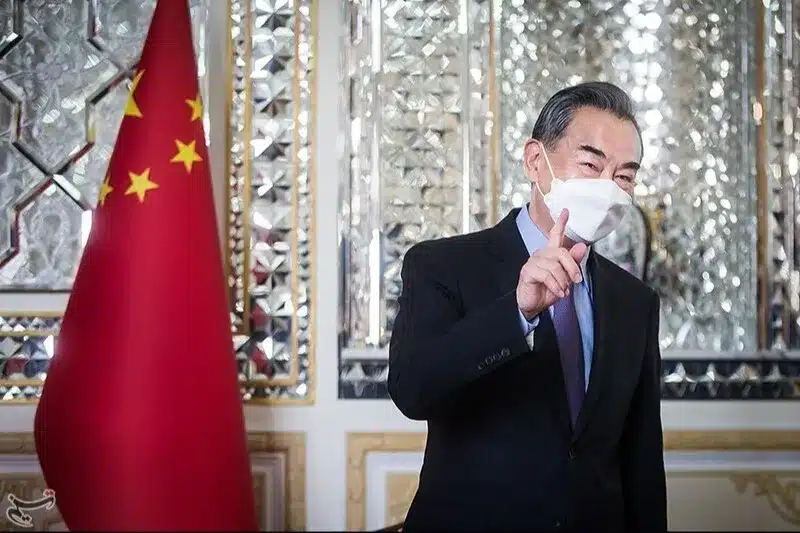China’s Overseas Influence Operations: Disaggregating the Risks
Andrew Chubb’s RUSI Whitehall Paper will be launched September 15, 2021. To register for the event, please click here.
How does China advance its political interests within liberal democracies? From 2017 onwards, Beijing’s overseas influence operations have received widespread attention, yet the issues raised have remained ill-defined.
Many prominent commentators and officials argue that clarity and effective policy responses depend on approaching the full array of issues — from electoral interference to extraterritorial suppression of dissent, inducement of self-censorship, and the presence of Confucius Institutes on university campuses — through a national security lens. In a new policy report released this month by the Royal United Services Institute in London, I argue that effective liberal-democratic policy responses depend on doing the opposite. Instead, it is crucial to carefully disaggregate the different kinds of risks posed by the People’s Republic of China’s (PRC) overseas political activities.
Some clearly are matters of national security because they concern the basic integrity of the political system and its decision-making processes. Yet, many of the most pressing challenges instead concern encroachments on the civil liberties of vulnerable individuals and groups outside the mainland, particularly Chinese dissidents and persecuted ethnic groups. Other PRC practices present challenges to academic freedom, the distinct set of norms that underpin the operation of liberal institutions of higher education. Importantly, various PRC overseas political activities constitute normal exercises of democratic freedoms. Ignoring these distinctions raises a further set of risks from within democracies themselves, such as alarmism in public discourse and national security overreach.
Based on a review of the well-documented case of Australia, the report finds PRC overseas political activities raise at least a dozen distinct risks to liberal democracies. Besides the differing nature of the issues at stake — security, rights and academic freedom — Beijing’s influence efforts meet with widely differing levels of success. The underlying sources of risk, too, vary widely: some are rooted in the PRC’s authoritarian turn under Xi Jinping, while others primarily reflect the PRC’s increased economic weight, and many are primarily a function of more general flaws in democracies’ own institutions.
If policymakers’ goal is the defence and strengthening of liberal democracy amidst a rising global tide of authoritarianism, it is vital that policy responses to the PRC’s overseas activities are based on a methodical assessment of their nature, causes, and impact with regard to liberal-democratic institutions and principles.
National security
National security has traditionally referred to issues concerning the threat or use of military force or violence against the state. However, the concept now commonly encompasses broader credible threats to the conditions of existence for the polity, such as food and water supplies, ecological environment, communication networks, and the integrity of government institutions and electoral processes. Adopting this broadened understanding, documented PRC overseas political activities raise two obvious areas of national security risk.
Electoral interference: Robust cyber capabilities and extensive experience in manipulating social media at home mean Beijing possesses the technical and institutional means through which to influence political content on online media platforms popular overseas. Beijing’s advertorials against Trump’s tariffs in rural Republican-voting regions, while a legitimate practice used by many other countries in trade disputes, clearly showed that party-state strategists are giving consideration to electoral implications of their overseas political activities. So far, however, the PRC is not known to have attempted, much less succeeded in, large-scale electoral manipulation. Available evidence presented in the RUSI report does not support the claim in Clive Hamilton’s polemic Silent Invasion: China’s Influence in Australia, and elsewhere, that Beijing attempted to flip a crucial Australian by-election in December 2017.
Elite co-optation: With many democratic systems open to the corrupting influence of moneyed interests, China’s increased economic heft has brought increased opportunities to exert political clout. At the same time, Xi Jinping’s re-emphasis of Leninist practices of organizational penetration and co-optation have meant lobbying activities by PRC enterprises and United Front groups (such as the China Council for the Promotion of Peaceful Reunification and its local affiliates) have assumed more overt political dimensions. PRC political donations scandals date back at least as far as the 1990s in the United States, where PLA-linked money was channeled into the Democratic National Committee. More recently parliamentary scandals in Australia and New Zealand have suggested the risks this could pose to national security. Prominent donor Huang Xiangmo reportedly threatened to withdraw a $400,000 donation to the Australian Labor Party after its defense spokesperson called for patrols in the South China Sea.
While such risks to national security exist, there is little evidence that PRC overseas political activities exert a major influence in this area to date. Beijing’s attempts at altering the foreign and security policies of Anglophone liberal democracies are generally abject failures, with the US, the UK, and Australia all hardening their positions on key security and technology-related issues in recent years. Military alliances with Washington have generally remained a matter of bipartisan consensus, even as strongly negative public views of Donald Trump prevailed during his tenure in the White House. In a recent work, Hamilton and Mareike Ohlberg profiled a number of PRC-friendly politicians sitting in Anglophone legislatures, but did not provide any examples of their influence on national security. By contrast, as discussed below, the PRC’s political influence operations abroad have had direct and sizable effects on civil liberties, specifically in émigré communities.
Civil liberties
Liberalism holds that individuals should be free to develop and express political views of their own volition. This typically entails rights to free speech, association, and assembly, as well as equal treatment under law, and access to necessary information upon which to base political judgements. Threats to such political rights are distinguished from national security risks by the fact that the immediate object of threat is particular citizens or vulnerable groups, rather than the political collective as a whole. As explained below, in most cases, PRC threats to civil liberties fall disproportionately on diaspora communities and individuals, and the impact has often been severe.
Extraterritorial suppression of dissent: The PRC has long sought to monitor and suppress dissent against the party-state overseas, especially since the advent of the overseas Chinese democracy movement in 1980s. But modern communications technologies, such as instant messaging and video calling, have created new possibilities for coercion from abroad that democracies have not yet addressed. A PRC student in Australia, for example, received video calls from police in China who were with her family, ordering her to desist from political activism. At one point an officer explicitly told the student “although you are [in Australia], you are still governed by the law of China.” Similarly, Uyghurs and other persecuted ethnic groups have faced technology-enabled surveillance and intimidation by PRC security services after fleeing repression in Xinjiang. China is not the only authoritarian regime to conduct such interference with political rights of émigrés overseas, though it may well be the most effective.
Control of Chinese-language media: Over a period of decades, overseas-based Chinese-language media have become much less willing to criticise the party-state or cover topics Beijing considers politically sensitive. On one hand this reflects how, in the Xi era, PRC security and United Front agencies have intensified pressure on local businesses to withdraw advertising from critical or independent overseas Chinese media outlets. On the other, it also reflects a lack of funding for credible, independent local journalism in Chinese language commensurate with the size of overseas Chinese communities. In many newspaper markets, for example, the only alternatives to PRC propaganda are media affiliated with the Falun Gong religious organization that has forged ties with far-right and pro-Trump causes. Coupled with the rise of social media platforms as news delivery, enabling PRC censorship of media content consumed overseas, the result has been an impoverished political information ecology for Chinese-language audiences.
Inducement of self-censorship: The PRC has stepped up pressure on public and private institutions to modify their language to align with orthodox CCP views of Taiwan and other geopolitical issues like the South China Sea. In 2018, for example, PRC consular officials persuaded a local council in Queensland to erase a Taiwanese flag painted by a local school pupil from a piece of public artwork. In 2019 and 2020 several Australian venues backed away from hosting academic and artistic events on issues deemed ‘sensitive’ by Beijing. The combination of the PRC’s increasing authoritarianism and newfound economic leverage has evidently increased the material incentives for foreign actors to comply with – or worse, anticipate – Beijing’s demands for limits on speech. The impact falls overwhelmingly on the political rights of the Greater Chinese diaspora, especially PRC political dissidents, ethnic minorities, and those from Taiwan, Hong Kong, and Xinjiang.
Various other PRC political activities have made an impact on civil liberties within liberal democracies. The co-optation of local community groups by the CCP United Front Work system, which then claim to represent “the” Chinese community, has crowded out the space for independent organizations. PRC propaganda organs have taken advantage of mainstream media organizations’ financial woes to place propaganda content in the form of paid advertorials masquerading as news, often without adequate labelling. And pro-PRC political protests have in some cases been geared towards suppressing others’ rights to political expression. Where materially supported or directed by a foreign state such as the PRC, such suppressive protest activities should attract stern legal penalties. However, protests that are spontaneous, rather than state-sponsored, and expressive rather than suppressive, are in fact normal exercises of core democratic freedoms.
Effectively addressing the PRC’s encroachments on civil liberties overseas starts with recognizing the distinction between national security and civil liberties. Major legislated expansions in the scope of national security introduced in Australia have provided little protection to individuals and communities facing extraterritorial coercion. Indeed the 2018 Espionage and Foreign Interference Law’s provisions against interference with political rights were limited to “rights that arise because of a person’s status as Australian,” apparently excluding non-citizens from protection.
Most fundamentally, security agencies are ill-suited to addressing these issues: much of their work is secret by necessity, meaning they are not easily accessible to diverse, vulnerable communities and individuals. The aggregation of rights protection into a “counter-interference” mission that also encompasses threats to government integrity positions the most impactful PRC overseas political activities as secondary concerns. As the RUSI report argues, governments need to approach these issues from an explicit rights-protection perspective built around accessibility and transparency, supporting vulnerable communities and individuals to protect themselves and obtain necessary help, collecting and publicizing data, and imposing targeted Magnitsky-style penalties on officials who carry out such violations.
Academic freedom
Exact definitions of academic freedom vary, but generally refer to institutional autonomy from external political and economic influences, and the rights of staff, students, and visitors to intellectual inquiry and expression, including on controversial issues. PRC overseas political activities have raised several challenges to these tenets. Most are rooted in the marketisation of university economics, the rise of the PRC as a market for overseas education, and failures by institutions to put in place appropriate safeguards for academic freedom in those circumstances.
Financial dependencies: In many countries cuts to public funding and the reorganisation of higher education on a profit-seeking basis have left institutions dependent on markets for education. The growth of the PRC’s market has sharpened this existing challenge to institutional autonomy upon which academic freedom depends, by generating incentives for universities to cultivate connections with the PRC party-state in order to secure market access. Such links create potential vulnerability to political pressure from the party-state, as well as more insidious incentives to proactively avoid controversy. Higher education providers are also concerned about the possibility of boycotts if their institution becomes embroiled in a controversy over the PRC’s long list of “sensitive” issues. This has resulted in some institutions showing less than unequivocal support for their faculty following demands from PRC students for alterations to teaching materials mentioning Taiwan or territorial disputes. Crucially, however, such demands are normal exercises of free speech in the university context; it is universities’ responses that determine whether academic freedom is upheld.
Punitive and coercive disclosures: In common with many past and present authoritarian states, PRC authorities seek to monitor the political views and activities of Chinese students overseas. It is unclear exactly how extensive the CCP’s channels of political reporting on overseas students are today, but the report shows there is sufficient evidence that such practices occur. In some cases this potential for disclosure of on-campus activity and in-classroom speech has resulted in threats or punishment against students’ family members. International treaties and domestic legislation in many countries requires that institutions ensure all students can pursue their studies in an atmosphere of intellectual freedom, making this a long overdue challenge for universities to address. Draft guidelines from Australia’s University Foreign Interference Taskforce have reportedly proposed training students to identify and report foreign interference threats including both political surveillance and espionage and technology theft. But the rolling together of academic freedom with national security risks replicating the stifling effects of surveillance. It is crucial to draw clear distinctions between national security and academic freedom, and handle the issues separately on that basis.
Institutional entanglements: Beijing offers selected foreign universities significant resources for Mandarin Chinese language learning through its Confucius Institutes (CIs). CIs – and the Confucius Classrooms they offer in local schools – can deliver tangible benefits to communities where opportunities to learn Mandarin are lacking. But CIs’ institutional integration into universities is a key difference between CIs and comparable initiatives from other states, such as the Japan Foundation, Goethe-Institut and British Council. This raises risks to academic freedom that require careful management. Given their political constraints, CIs should not be involved in the teaching of for-credit courses on subjects beyond Chinese language, and contractual arrangements must be transparent and public. While many CIs have operated with a high degree of autonomy from Beijing, some founding contracts have assigned the Chinese government a degree of authority over academic matters such as teaching assessment. Few have allowed for faculty oversight or review of CI activities. Transparency is a crucial guarantor of academic freedom, as the UK and EU academics have emphasised.
Self-censorship: Self-censorship occurs on two levels, institutional and personal. On an institutional level, commercial publishers including SpringerNature have complied with PRC government orders to block particular content from users in China. Such enterprises should be boycotted by academics interested in academic freedom. On an individual level, however, there are understandable family, research, and ethical reasons why academics – and indeed think tank researchers, commentators, and journalists – may opt to avoid sensitive topics or soften public criticism of Beijing. In a 2018 survey of China researchers, more than 15% said they had decided against pursuing a research project due to its sensitivity, and 24% said they had adjusted a project’s focus, in many cases in consideration of the safety of others. In particular, researchers with family in the PRC are facing major additional risks to exercising normal academic freedoms that few universities have so far attempted to mitigate. The above-mentioned survey of China scholars found ‘none’ to be the most common response regarding the support they received from their institutions in dealing with the Chinese government. This result clearly suggested the need for academic institutions to develop a shared approach to supporting their researchers.
The PRC’s efforts to control discussion inside and outside China are the proximate cause of these challenges to academic freedom. However, it is the lack of institutional safeguards that enables such efforts to be effective, and which present the clearest opportunities for universities to respond with measures to prevent encroachments from both the PRC and from home governments. This should begin with ensuring basic “China-literacy” of university management in PRC-engaged institutions, and indeed internationalised universities more generally.
Practical and direct risk mitigation measures include establishing clear points of contact for students and staff with concerns about encroachments on their academic freedom; ensuring university codes prohibit punitive and coercive disclosures; enhancing international student welfare services; and formulating voluntary codes on measures to protect academic freedom. In this way, universities can coordinate their responses to gain safety in numbers against the risk of targeted PRC boycotts, while also resisting overreach from government. None of these issues is a uniquely China-related problem, meaning such institutional responses can be presented as meeting broader challenges to academic freedom in today’s circumstances.
Conclusion
The nature and impact of the PRC’s various efforts at influencing politics in liberal democracies has varied enormously across different lines of activity. Extraterritorial coercion of dissidents and persecuted ethnic groups has had a profound impact on freedoms of speech and political association in the émigré communities, and Beijing’s political red lines powerfully shape the content of the Chinese-language news environment abroad. However, the impact of its attempts to influence the foreign and security policies of Anglophone liberal democracies or influence elections have been minimal so far.
Recognizing the causes and varied impact of risks raised by the PRC’s overseas political activities is crucial to effective policy responses. If the PRC’s malign intent is taken as the cause of problems that are in fact rooted in more general systemic shortcomings, such as the influence of money in politics, barriers to access to law enforcement for diaspora communities, or obstacles to full political participation by all social groups, then such vulnerabilities are likely to remain unaddressed in policy. Disaggregating these issues is a necessary first step towards comprehensive, methodical policy responses.




